The story of a golden classic: Shirley Bassey's Goldfinger and the story of its creation...
Содержание
"Goldfinger" is a legendary classic composition first performed by Shirley Bassey in 1964. The song was written by John Barry, Leslie Bricasse and Anthony Newley specifically for the James Bond film of the same name. Subsequently, sound artists such as Dr Evil, Max Power and others released their own covers of it...
More than half a century later, this song still stands above all others in the James Bond series! It harmonises with music that conveys an omnipresent sense of intrigue, adventure, evil, wealth and glamour... And who would have thought that back in 1964 it was almost taken out of the film! It's just that producer Harry Saltzman said: "That's the worst song I've ever heard in my life! (there were also a couple of swear words used by Saltzman to emphasise his obvious disapproval... But we'll leave those out)" But the song was lucky! It was left only because the British premiere of the film was exactly one month away and there was no time to write a new one. And what was the surprise of our esteemed "music gourmand" when the track didn't just go off... "Goldfinger" became a world-famous song, the subject of universal acclaim and Shirley Bassey's signature hit!
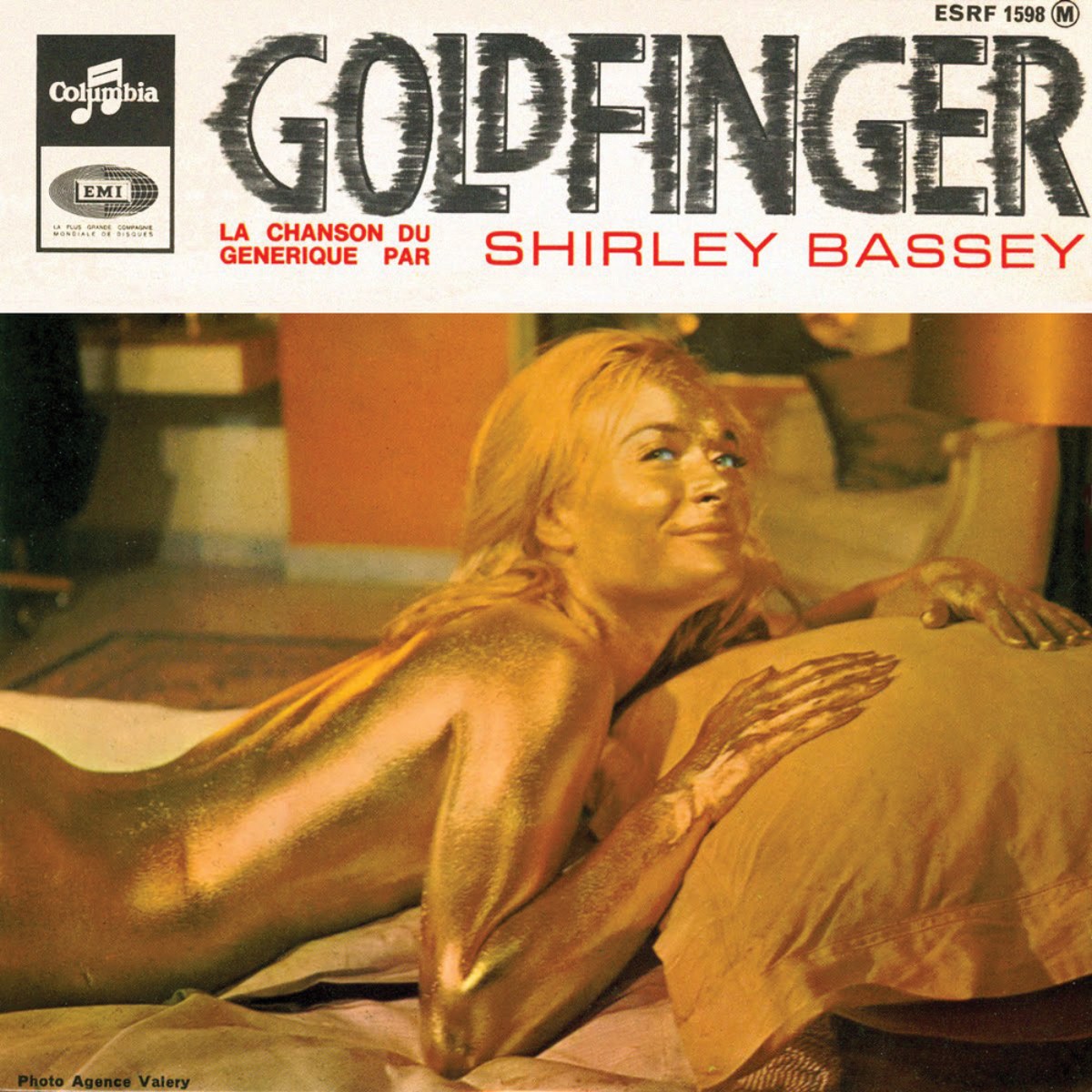
"Touch of Midas."
John Barry first asked Bassey to record the number when he was conducting her on a national tour in December 1963. It should be noted that he had a romantic interest in the singer... At that time, the lyrics of "Goldfinger" had not yet been written. Well, let's listen to the memories of the singer herself:
"He said: "There's a new song for a James Bond film, called Goldfinger." I'd really like you to be the one to sing it... I know your rule: you never listen to a song that doesn't have words. And I should warn you, it's really just music that I wrote. The lyrics are still coming..." And because we had a great relationship on the tour, I said: "All right, I'll listen to it. I'll break my rule." Today I'm very happy I did that... When he started playing, I got all goosebumps... And I said: "I don't care what the lyrics of this song are. I'm gonna do it!" Luckily, the lyrics were great..."
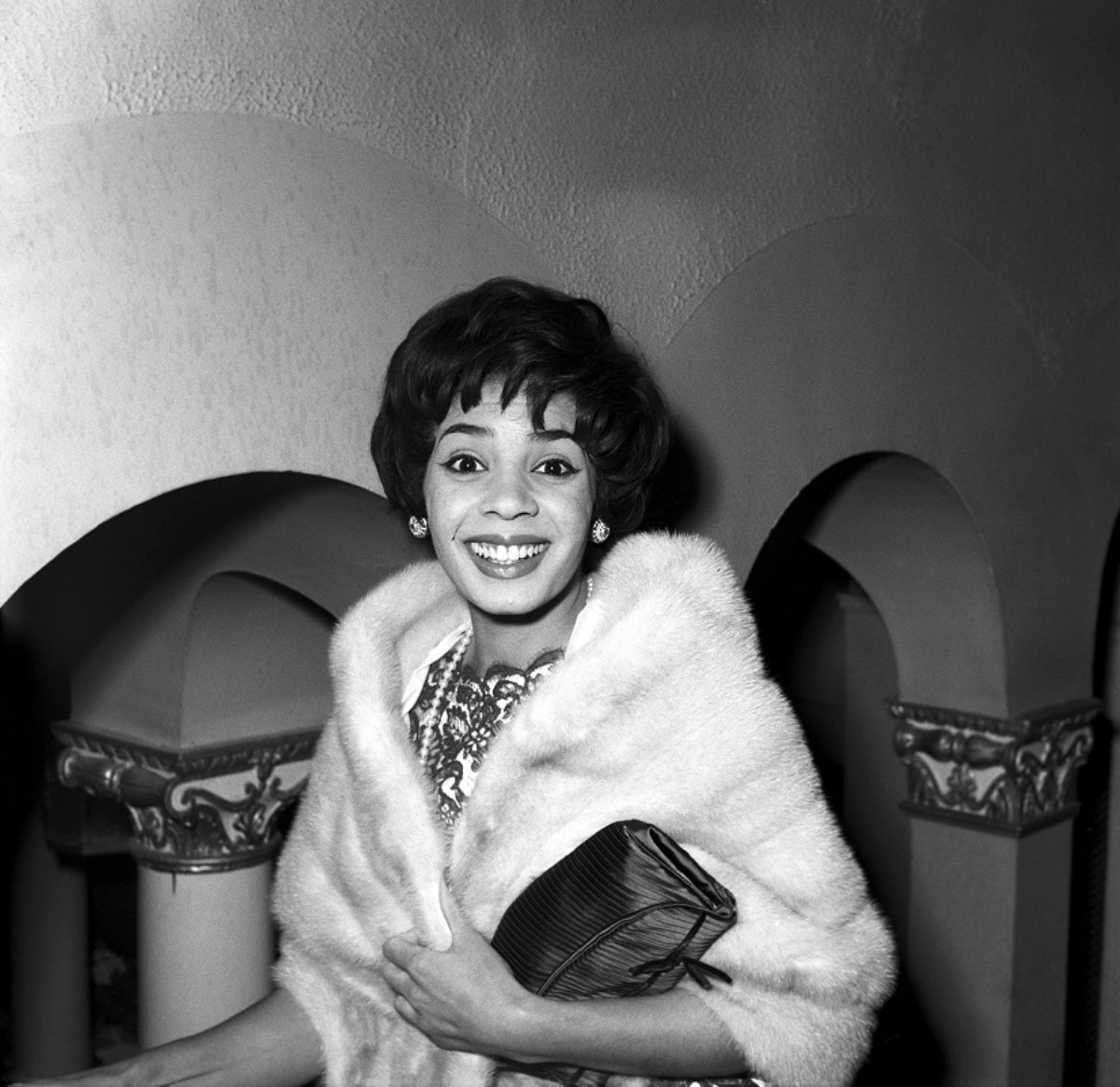
There's also a rather curious story associated with the tune "Goldfinger".....
Initially, the film's director, Guy Hamilton, pointed John to "Mack The Knife" as an example of a "rough and tough" song about a nemesis that might inspire him... The composer then plunged headlong into his work: he worked on the music night and day, and eventually produced a tune that used the word "Goldfinger"! The next morning, however, Barry's flatmate, the actor Michael Caine, had to disappoint his friend... When John played the first three notes at breakfast, Caine immediately declared: "It's 'Moon River'", referring to the theme from the 1961 film Breakfast at Tiffany's. Barry then added a three-note brass line to hide the similarity, but that didn't fool the writers of the text either... As soon as they heard the melody, they looked at each other and sang "Goldfinger" to the tune of "Moon River"! John Barry, however, was not surprised.
For their part, Leslie Bricassom and Anthony Newley told a colleague about Auric Goldfinger (the film's hero) punishing his assistant Jill Masterson for betraying him by having her gilded to death... This prompted them to come up with the phrase "the Midas touch", which in turn provided the lyrical sample for the song and helped finish the work in a couple of days.
And so, on 14 May 1964, Anthony Newley recorded a soulful demo accompanied by John Barry, and this formed the basis for Shirley Bassey's later release...
Right hand
Meanwhile, having composed the soundtrack and arranged the famous 'James Bond' theme, Barry could boast the unbridled punch of his brash jazz orchestrations... Sitting next to him at the console was engineer Eric Tomlinson, who recalled:
"I loved working on those Bond films, and I really enjoyed working with John Barry... He was an extremely talented man, and although he could be very pushy about how things should sound, we got on very well!"
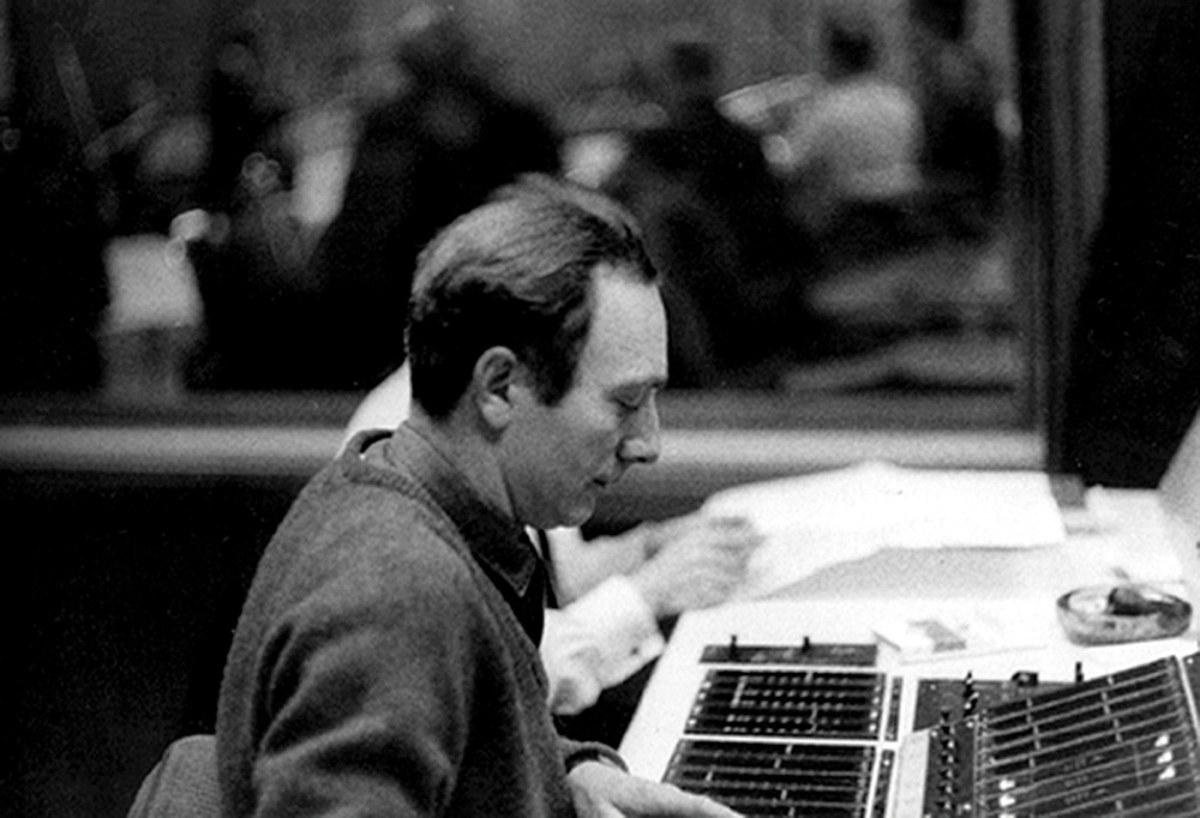
It all started when Eric Tomlinson, a jazz and big band aficionado, was helping an acquaintance working at Radio Luxembourg at weekends to connect cables and set up microphones. That man was Allen Stagg, the future manager of EMI Studios at Abbey Road. And when he got a job as manager of IBC Studios on Portland Place in Central London, he invited Eric to join him as an assistant engineer. Tomlinson was soon learning the ropes, recording various forms of orchestral and 'easy listening' music, and working with jazz artists such as Johnny Dankworth and Cleo Lane. In 1959 he worked on his first music for the film John Paul Jones for composer Max Steiner.
Previously very few studios, including major British film complexes, had the facilities to record large-scale orchestral music from films, so CTS offered a conveniently located alternative, able to accommodate around 65 musicians in its 85 x 40ft rectangular room, while the relatively simple control room was equipped with a Telefunken console with 12 inputs, a Philips three-track tape recorder, custom Tannoy monitors and, in terms of effects, a pair of EMT echo boards.
"This studio was originally built as a banqueting hall for Whiteleys department store," Tomlinson said. - 'They had an orchestra playing amongst the potted palms and it was basically a very large tea room. Then it turned into an auction room, so it was by no means acoustically correct. But the CTS project sponsors took care of that, and the result was amazing! There was a curtain that we could pull halfway across the room to separate the string section from the brass and percussion instruments to some extent, so the overall sound was very manageable..."
Orchestral manoeuvres
John Barry's arrangement utilised saxophones, brass instruments and a rhythm section. This is what Tomlinson said about the composer's "orchestral manoeuvres":
"At the beginning of the session, John Barry would have the musicians run through his score a couple of times to make sure they had the right tempo. When the musicians first walked into the studio, they didn't yet know what they were going to play. They were hearing the music for the first time. But they were top-notch British guys... They were amazing. They'd just sit down and talk about horse racing or football results and then, as soon as John was ready, they'd start making absolute magic..."
"...The musicians sat with their backs to the screen while John watched the film and conducted, and I don't remember us having any problems. However, there was one occasion when Eric Rogers, who composed the music for "Carry On", got annoyed and told him, "Stop looking at the screen! That's a very bad tone! You should be looking at me!"
"Although John Barry and I got on very well, he was a demanding man and was never satisfied," continues Tomlinson. - "He would always say, 'Let's do another take,' and that's why Shirley Bassey nearly blew her voice off when she had to hit the extended high note several times at the end of 'Goldfinger'!" he says. "Yes, it's very good, very good," John kept repeating, "but I think we can do another take. I remember Shirley turning purple and saying something I didn't catch..."
"I almost fainted..." - Shirley Bassey recalled.
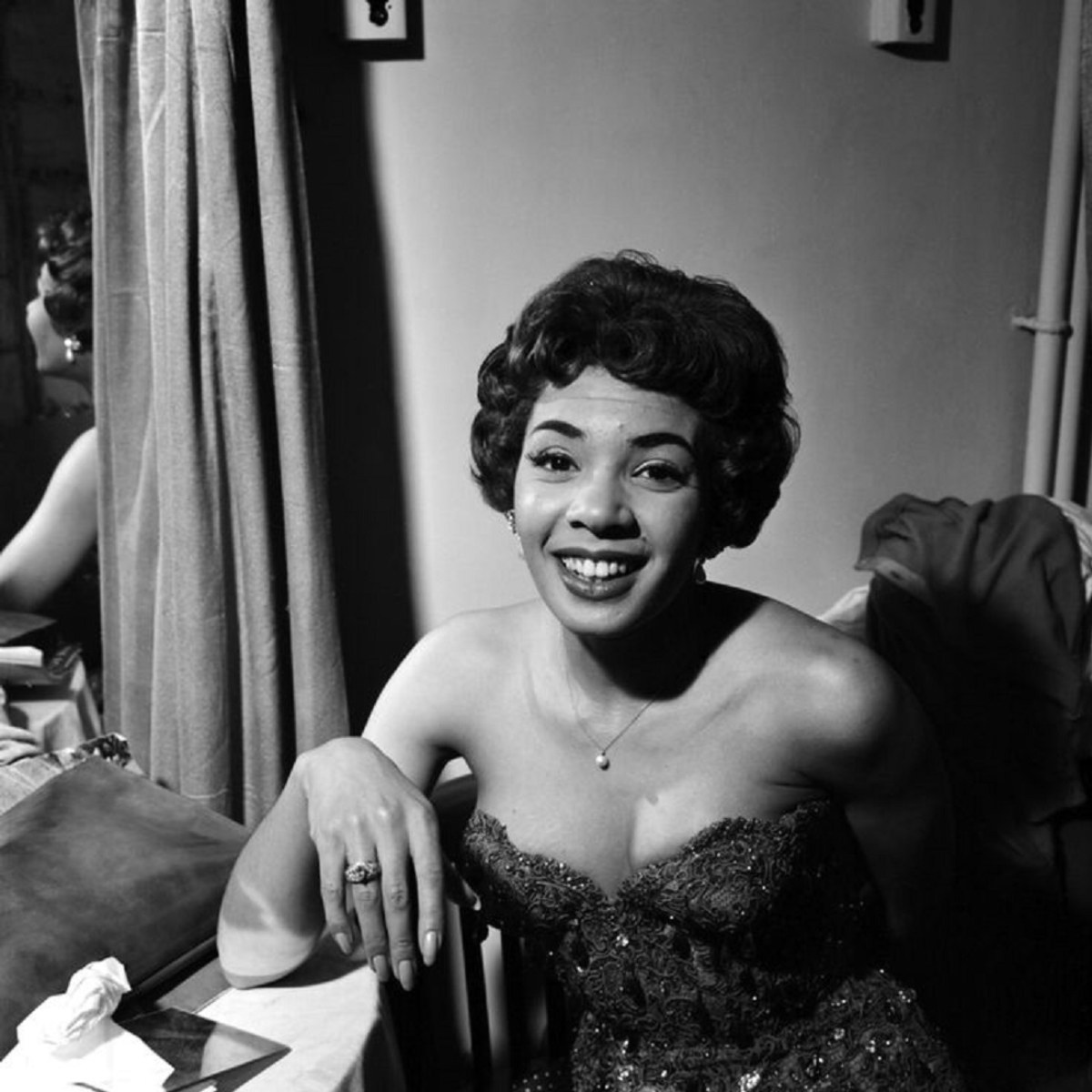
Success
Thankfully, all those efforts paid off! "Goldfinger" became Bassey's only US top 10 hit, reaching number eight on the Billboard Hot 100!
By the time the song reached number 21 in her native UK, the soundtrack album was a huge success! In 1965, the single was leading the Billboard 200...
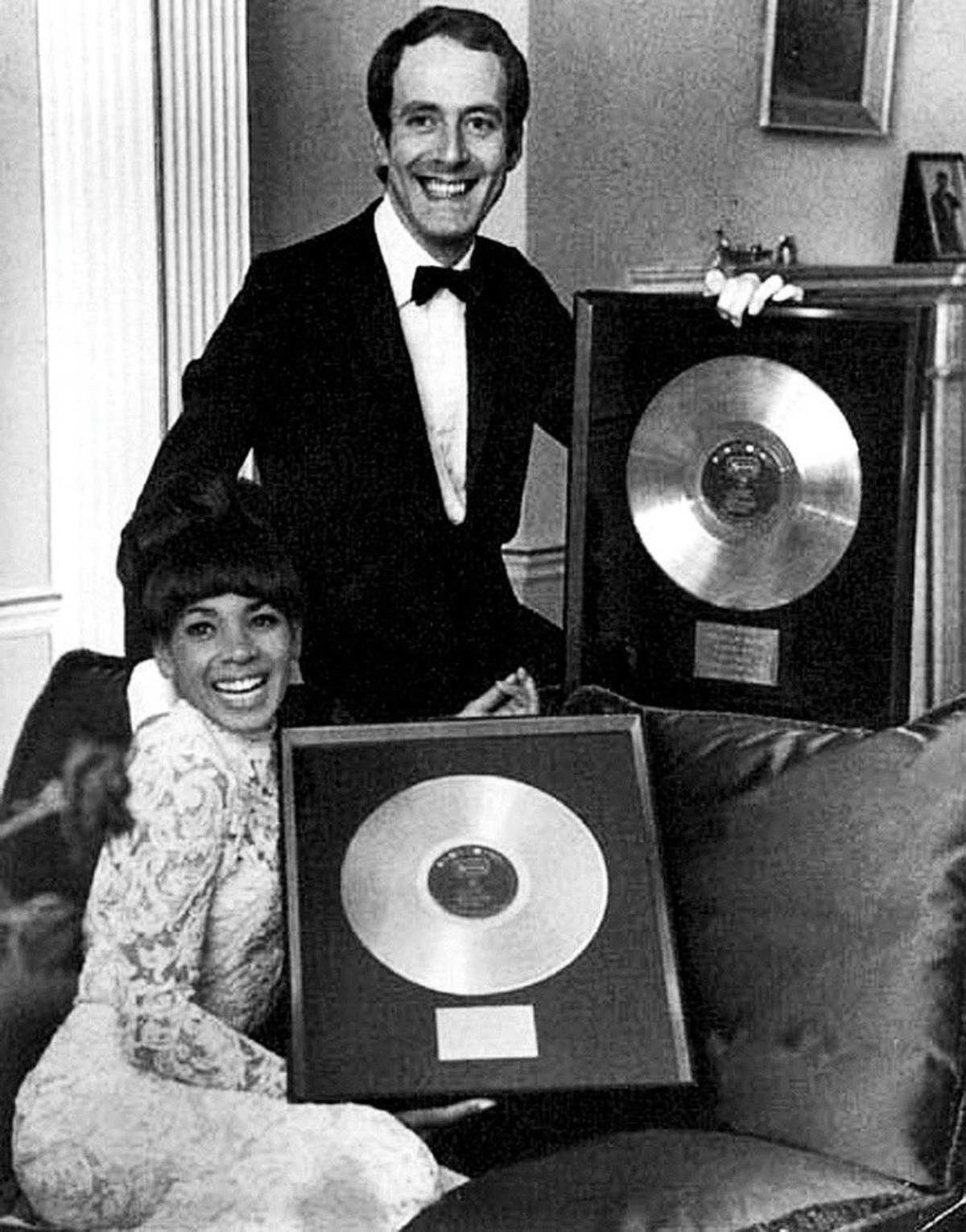
Meanwhile, in addition to John Barry's music for other films, Eric Tomlinson recorded the work of many other leading composers while at CTS. Among them was Ron Goodwin, whose popular theme for the 1965 star-studded comedy Air Adventures was a source of tension for Pinewood Studios re-recording mixers John Mitchell and Gordon McCallum...
"The film was shot in Pinewood, it was dubbed there, and they insisted on hearing the result of our first morning's work," Tomlinson recalls. "They had a car waiting outside to pick up the tape of the music, and it was around noon when we got the phone call ... We were told, 'It's no use.' That evening we drove to Pinewood where we were met by the whole sound team and their manager who told us that there was too much echo in our music! In their opinion, the sounds were too distant and didn't work for the picture, which should be 'felt, not heard'... They then insisted that Ron and I listen to what they thought was the right music for the film..."
"...It turned out to be a pretty boring memorial service, and Ron Goodwin was overwhelmed. But the entire Pinewood staff, who were clearly working overtime, kept saying that my recording of Ron's music was too overt, whereas instead it should have been very soft background noise... So we carried on in our own way, the music eventually being accepted by this outdated sound department..."
By the way: there's a very bizarre, and slightly barbaric, story behind CTS... And it was Tomlinson's own fault, as one weekend he thought the studio was looking "a bit dull". So he gave the CTS cleaners instructions that he soon regretted:
"It was an unloaded week, there was very little work, so I thought they might clean up the studio and decorate it a bit...," Tomlinson recalled. "But when I came back a couple of days later, I found that everything had been varnished! Including the floor, the walls and even the matte black piano! They had covered everything in sight and the studio looked like the entrance to an ice cave. Talk about sad - I couldn't believe it! The wood usually helped disperse the sound, but now the place was unusable, so I called the cleaners again and they spent the next two or three days using lots of wire loofahs to clean everything. However, the piano never returned to its pristine condition... Good thing at least there were no guitars lying around."
And lastly...
As for the track for the James Bond film, "Goldfinger" later became one of the top 100 most famous film tunes in the United States. In 2008, the single was inducted into the Grammy Hall of Fame.
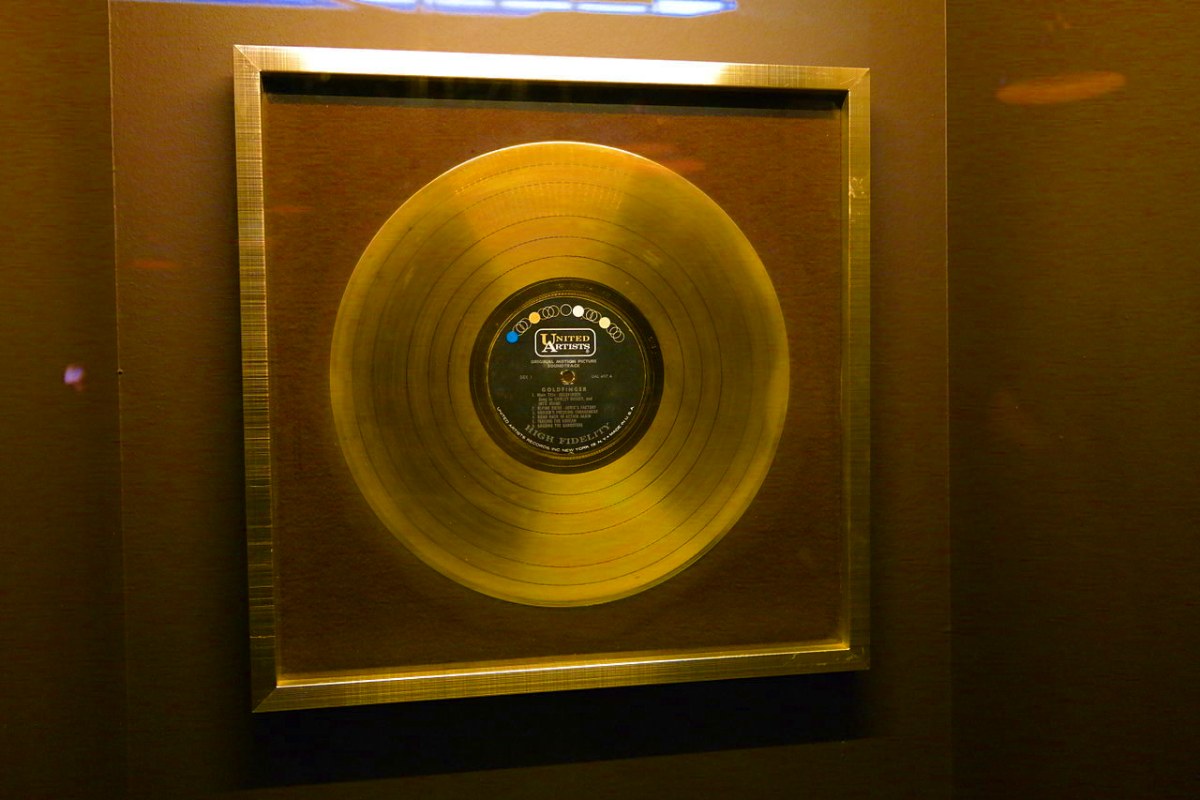
Shortly after the success of Goldfinger, Eric Tomlinson left CTS to join Anvil Films. There he took on the challenge of rebuilding a musical theatre inside the outdated Denham Studios facility, which had been founded by film producer and director Alexander Korda back in 1936! At 50 feet high, it was almost double the size of the room Tomlinson was used to at CTS! The studio could accommodate about 120 musicians!
"The main area was a big old-fashioned film set with a 50-foot ceiling, a catwalk at the top and a big screen at one end," Tomlinson recounted. "I built a control room right in the studio, with a divider booth next to it. It was a huge place, and that's where the Star Wars and Superman soundtracks were recorded live, with no overdubs..."
"...Over the course of my career, technological advances have definitely improved the final product. In fact, I think it's now reached a point where it's not going to get better for the foreseeable future. Surround sound really drives me crazy, especially when I go into film..."



